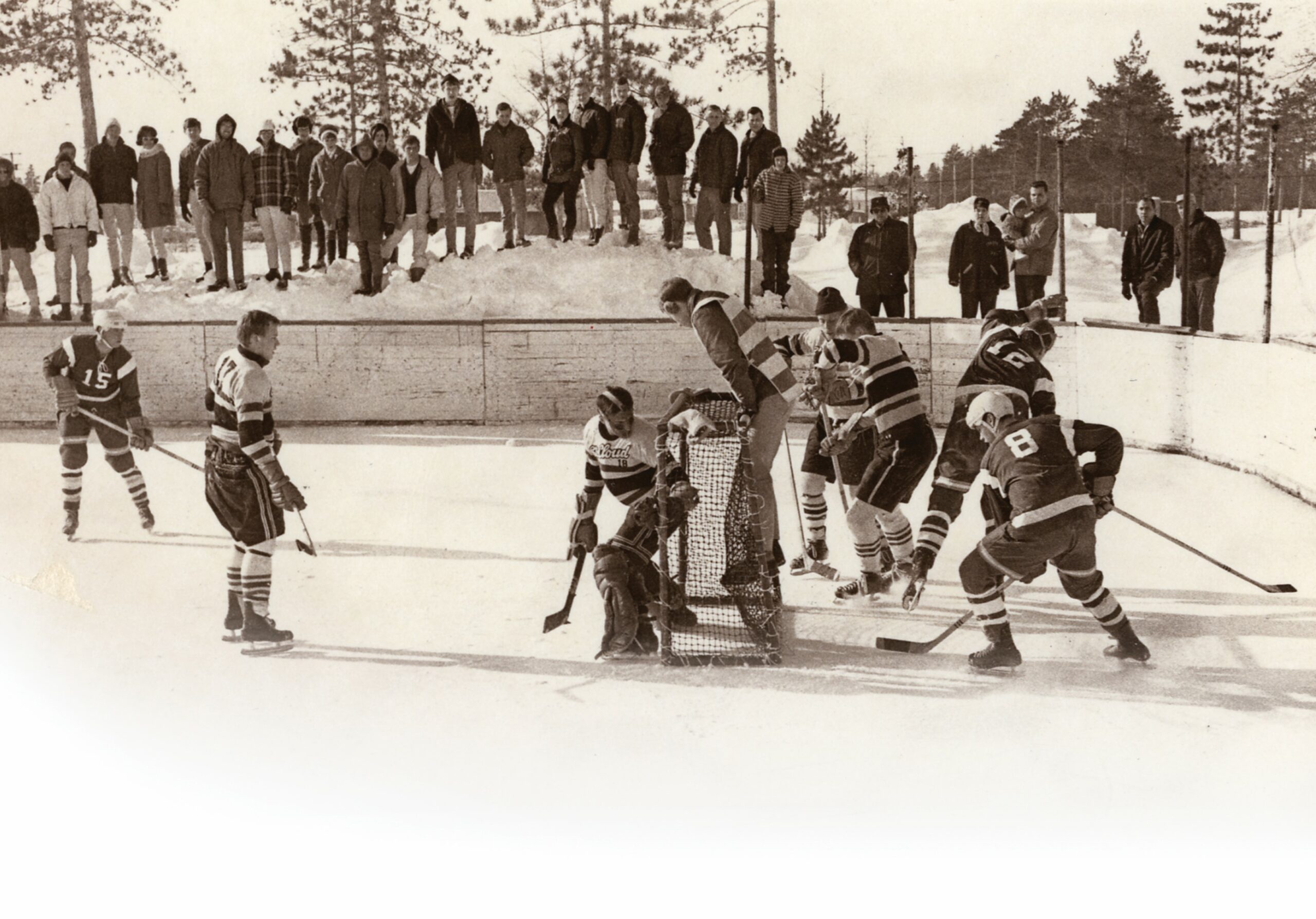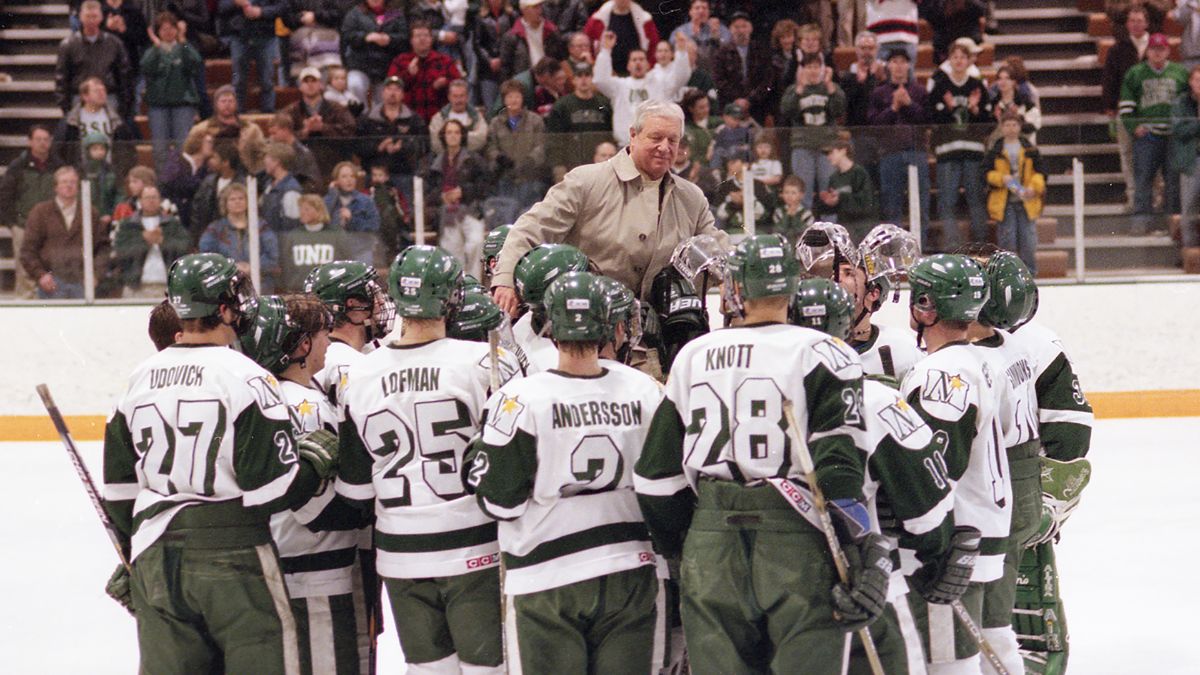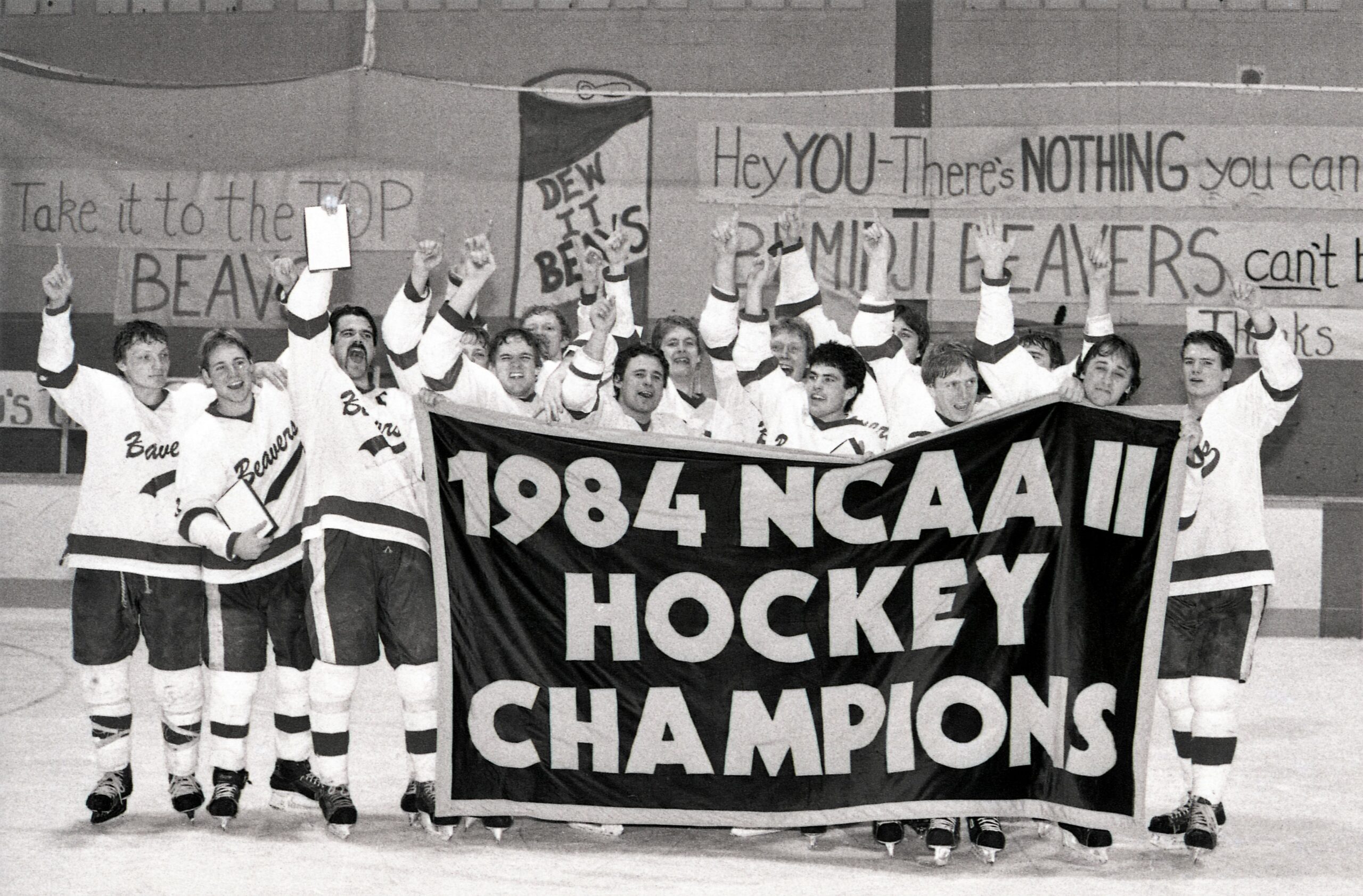
By Bemidji State Athletics
Published 12:00 p.m. on Dec. 10, 2005
"First the roof falls in, then the bottom falls out.”
This statement by an anonymous 1949 Bemidji State men’s hockey plaeyer summed up the program’s early years.
In 1948, the Beavers played their first season indoors at a city facility called the Bemidji Sports Arena until the roof collapsed under the heavy snow of 1949. The team moved outdoors, where they skated until the snowplow used to clear the playing ice on Lake Bemidji broke through into four feet of water.
Jinxed, the team was shelved after the 1950 season, waiting for almost a decade before the next player strapped on skates for Bemidji State.
If trials build character, Beaver Hockey was always destined for greatness.
As a student, Ed Johnson proposed to the administration that Bemidji State start a hockey program. John Glas, BSU’s vice president for finance, approved a $100 budget for sticks in January 1947 to get the program started, although the team used football jerseys and goalie equipment donated by people from International Falls, Johnson’s hometown.
After the fiascos of the 1940s, the puck finally dropped again in Bemidji on Feb. 13, 1960. But the Beavers bounced around venues – from the 17th Street Rink to the College Rink (often referred to as the 19th Street Rink) to the indoor John S. Glas Fieldhouse by 1967. The rink-to-rink whiplash earned the team a local nickname of “Hard Luck Boys.”
A turning point for the program came in 1966, when North Dakota head coach R.H. “Bob” Peters was hired to serve as the program’s fifth head coach. Peters, who had played goaltender at UND and helped lead the Fighting Sioux to the 1965 national semifinals, was lured to Bemidji primarily by the indoor arena being constructed on campus.
Peters led BSU to a 13-5-1 record during his debut 1966-67 campaign, and the team finally moved into “the Glas” for the 1967-68 season. Success came immediately, as the Beavers won their final eight games of the year en route to the program’s first national championship in just Peters’ second year at the helm.
The 1968 national championship was simply the foundation for what would become one of the true dynasties in the history of collegiate athletics. Under Peters’ guidance, BSU captured national titles in each of the next three years, and four times in the next five seasons, to establish itself as the premier small-college men’s ice hockey program in the nation.
Those five national titles out of the gate were part of 13 national championships won by Bemidji State during the Peters era, and he went on to lead the Beavers to 702 victories. He became the first college hockey head coach to win 700 games with one school, and his 744 career victories are the second most by one coach in the history of the sport.
If one can find a highlight in a 35-year career littered with national championships and All-American honors, one would look to Bemidji State’s 1983-84 season. That campaign saw the Beavers not only bring home their eighth national championship – and first at the Division II level – but BSU also set a collegiate hockey record for the most victories in an unbeaten season (31-0-0). The record remains the standard for all hockey programs today.
The perfect campaign helped BSU assemble a 42-game winning streak, also a collegiate hockey record. Team captain Joel Otto won the Hobey Baker Award, given annually to the national player of the year, and in 2003 he became the first Beaver to have his jersey number retired.
A new era for the BSU men’s hockey program dawned in the late 1990s, when the university decided to move the program to Division I. Bemidji State reached the Frozen Four in 2009 under new head coach Tom Serratore, a former Beaver player who took the reins from Peters in 2001-02.
“The skaters who built the history at BSU owe a lot to those skaters from the early years,” Peters said. “They persevered through some tough seasons, and laid the foundation for champions to follow.
“Those championship BSU teams will walk together forever. And tradition is lasting victory because tradition never graduates. The players develop intense loyalty to each other, the team, the university and the colors.”

KEEP READING:




